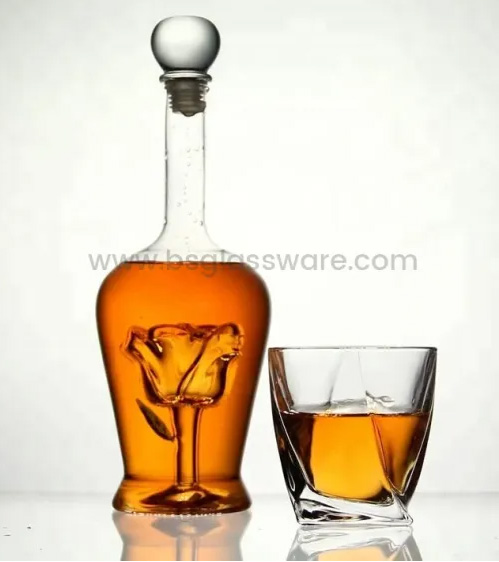Is glass better than plastic bottles water?
In the ongoing quest for sustainable and healthy living, the choice between glass and plastic water bottles has become a topic of significant discussion. Each material has its merits and drawbacks, and understanding the factors that differentiate them can help you make an informed decision about the best option for your hydration needs. Let's delve into the glass vs. plastic water bottle debate.
**1. Environmental Impact: The Eco-Friendly Factor
Glass:
Glass is often hailed as the more eco-friendly option. It's endlessly recyclable, meaning it can be recycled without loss of quality, making it a sustainable choice. Additionally, the production of glass bottles typically involves fewer chemicals than plastic, contributing to a lower environmental impact.
Plastic:
While some plastic bottles are recyclable, the recycling process for plastic is more complex. Not all plastics are created equal, and some types are more challenging to recycle than others. Single-use plastic bottles, in particular, contribute significantly to pollution, as many end up in landfills or oceans, taking years to decompose.
**2. Health and Safety: What's in Your Drink?
Glass:
One of the main advantages of glass is that it doesn't contain harmful chemicals that can leach into your beverage. Unlike some plastics that may release toxins, glass provides a clean and inert container for your water, ensuring that your drink remains pure and uncontaminated.
Plastic:
Certain plastics, especially those with the recycling code 1 (PET or PETE), are considered safe for single use. However, when exposed to heat or sunlight, plastic bottles can release harmful chemicals like BPA (Bisphenol A). BPA has been linked to various health issues, making it a concern for those who prioritize the safety of their drinking vessels.
**3. Durability and Portability: The On-the-Go Dilemma
Glass:
Glass is undoubtedly heavier and more fragile than plastic, which can make it less convenient for on-the-go use. However, advancements in glass bottle design, such as the introduction of shatter-resistant glass and protective sleeves, have addressed some of these concerns, making glass bottles more portable and durable.
Plastic:
Plastic bottles are lightweight, making them the go-to choice for those who are constantly on the move. They are less likely to break, making them a practical option for activities like hiking, sports, or travel. However, their lightweight nature can also make them more susceptible to wear and tear.
**4. Taste and Odor: The Flavor Factor
Glass:
Glass is non-porous and does not retain flavors or odors, ensuring that your water tastes as it should. This makes glass an ideal choice for those who are particular about the purity and taste of their beverages.
Plastic:
Plastic bottles can sometimes impart a subtle taste or odor to the water, especially if they are exposed to heat or sunlight. This can be a drawback for individuals who are sensitive to changes in the flavor of their drinks.
**5. Cost Considerations: Breaking Down the Numbers
Glass:
Glass bottles tend to be more expensive to produce and transport due to their weight and fragility. However, the long lifespan and recyclability of glass can offset these initial costs, making them a cost-effective choice over time.
Plastic:
Plastic bottles are generally more cost-effective to produce and transport, contributing to their widespread availability and affordability. However, the environmental and health costs associated with single-use plastic bottles may outweigh their initial economic advantages.
Conclusion: Balancing Priorities for the Perfect Sip
In the glass vs. plastic water bottle debate, there is no one-size-fits-all answer. Your choice should align with your priorities, whether they lean towards environmental sustainability, health and safety, durability, taste, or cost considerations. Glass and plastic both have their merits, and understanding the nuances of each can guide you towards a choice that aligns with your values and lifestyle. Ultimately, the best water bottle is the one that encourages you to stay hydrated while minimizing your impact on the planet and prioritizing your health. So, sip wisely and stay refreshed!


Comments
0